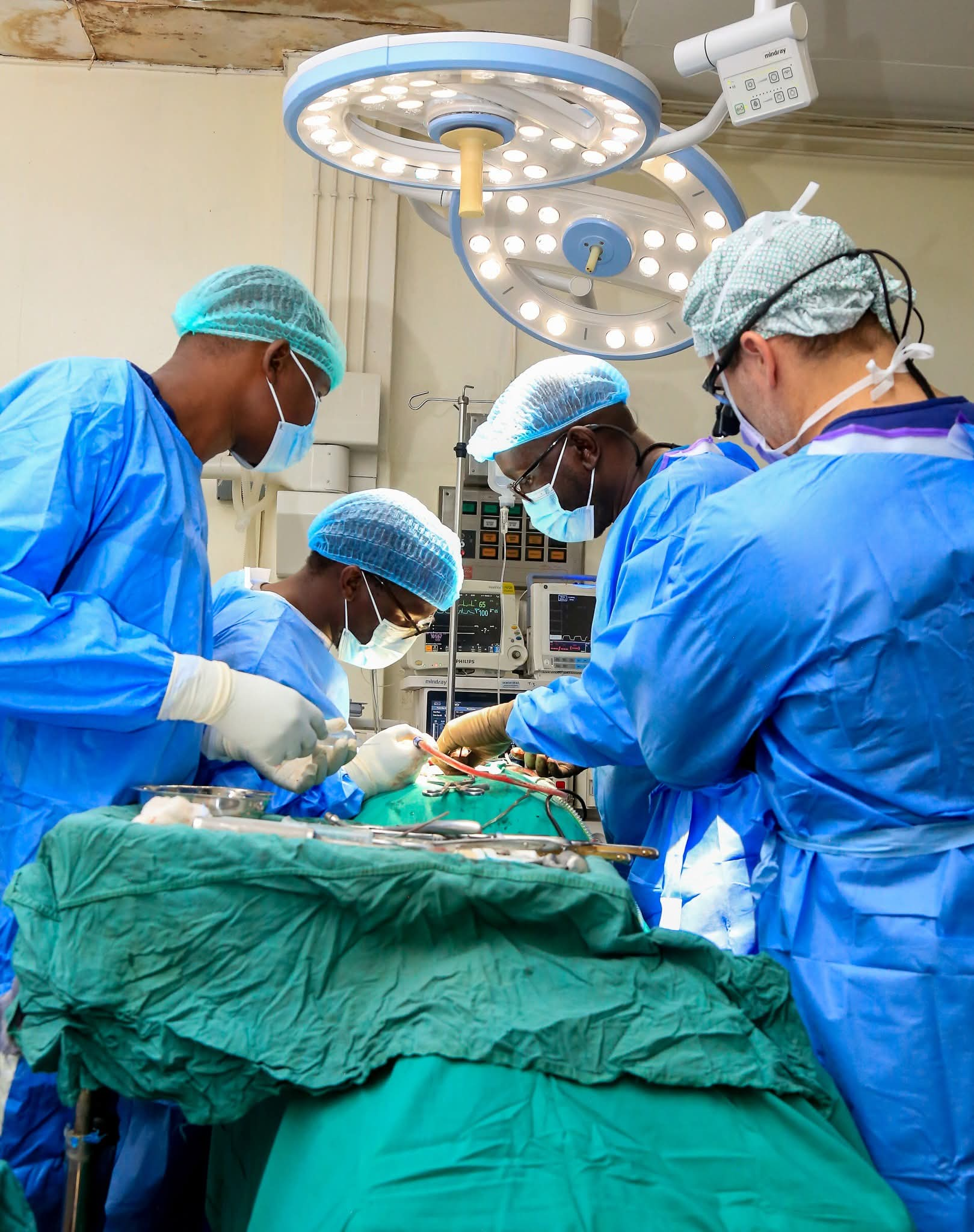

Fourteen-year-old Collins Ochiel
has spent most of his life battling an illness that has slowly taken away his
strength, his vision and even his smile.
His mother, Agnes Juma from Gem in
Siaya county, recalls how it began with convulsions when he was only three
months old.
At first, doctors thought it was
cerebral malaria, but the seizures never stopped.
Over the years, his condition
worsened, his left eye grew weak, his right limbs felt frail and even his
once-bright grin curved to one side.
Despite these struggles, Ochiel
pushed on with school. But earlier this year, he stopped writing in class, not
out of negligence but because his body could no longer keep up.
An MRI scan three weeks ago finally
revealed the truth, a large brain mass.
For Agnes, the news was devastating
but also brought a glimmer of hope when she learned about the neurosurgery camp
at Jaramogi Oginga Odinga Teaching and Referral Hospital.
The 10-day camp, which began
Monday, has already seen two successful operations, with Ochiel among the 39
patients lined up for life-saving brain and spine surgeries.
Led by the Kisumu Neuroscience
Initiative, the camp has drawn in specialists from the United States, including
neurosurgeon Dr Bethwel Raore, alongside JOOTRH’s Dr Walter Adero and Dr Lee
Ogutha.
The team also includes
anaesthesiologists, nurses and support staff, all working together to deliver
procedures that would otherwise remain out of reach for most families.
JOOTRH chief executive, Joshua
Okise, praised the initiative, saying that only one neurosurgeon currently
serves the entire Nyanza region.
“There are patients already
admitted and prepared for theatre. Our staff have ensured all investigations
are complete so surgeries can continue smoothly. For many of these patients,
this is the only chance to access care they could never afford,” he said.
Beyond operations, the programme
focuses on building local capacity.
Through live demonstrations, mentorship
and telemedicine, JOOTRH staff and medical students gain hands-on experience in
handling complex neurosurgical cases.
Since its inception, the
partnership has delivered hundreds of surgeries and countless reviews, leaving
a lasting impact in the region.
For Agnes, though, the concern is
much more personal. Sitting by her son’s bedside in ward three, she prays
quietly for his chance at a normal life.
“I have carried him to hospitals
since he was a baby. I only pray this surgery gives him the chance to live the
life he has always wanted,” she says, her eyes fixed on Ochiel
As the camp continues, Ochiel and dozens of other patients represent the true meaning of the initiative restoring dignity, health and hope where it once seemed lost.















